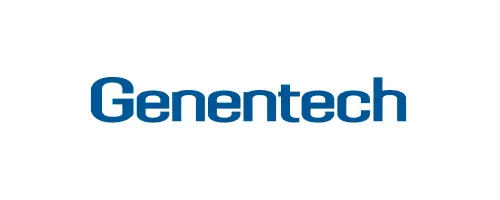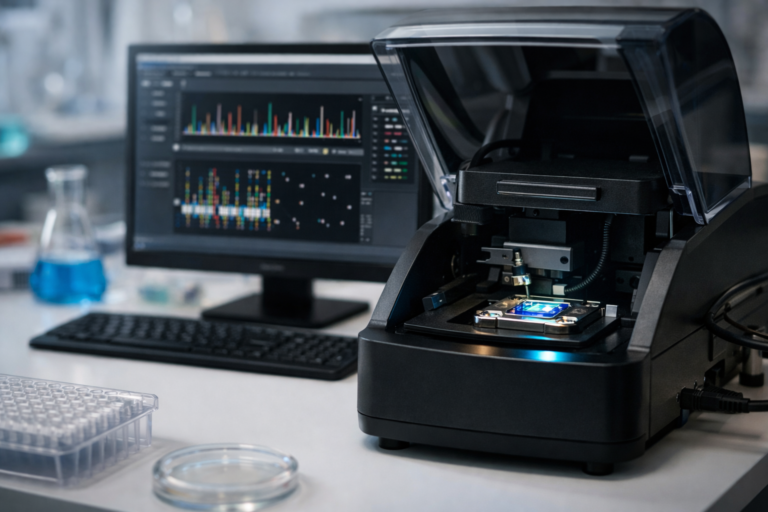
Genentech and Roche Unveil Comprehensive Advances in Alzheimer’s Disease Research at AAIC 2025
At the 2025 Alzheimer’s Association International Conference (AAIC), held in Toronto from July 27 to 30, Genentech and Roche took center stage with a sweeping showcase of clinical data, diagnostics innovation, and strategic development plans aimed at transforming the future of Alzheimer’s disease (AD) care. Representing both the pharmaceutical and diagnostics arms of the Roche Group, the companies presented a unified front in the global fight against one of medicine’s most pressing and complex neurological disorders.
Through a series of late-breaking oral presentations, posters, and featured research sessions, Genentech and Roche shared progress on investigational therapies like trontinemab—engineered to cross the blood-brain barrier more effectively—as well as promising results from their Elecsys® pTau217 blood-based diagnostic platform. Together, the developments reflect Roche’s overarching strategy to address Alzheimer’s disease at every stage of the patient journey—from early risk identification to treatment of symptomatic disease—by combining cutting-edge diagnostics with therapeutic innovation.
Pioneering the Brainshuttle™ Platform and Trontinemab’s Therapeutic Potential
A major highlight at AAIC 2025 was the unveiling of new data from the ongoing Phase Ib/IIa Brainshuttle™ AD study. Brainshuttle is a proprietary platform designed to ferry therapeutics across the blood-brain barrier—an enduring challenge in neurological drug delivery. Trontinemab, the lead candidate using this technology, is a novel monoclonal antibody engineered to enhance brain penetration and target amyloid plaques, a pathological hallmark of Alzheimer’s.
Data from the dose-expansion cohorts of 1.8 mg/kg and 3.6 mg/kg trontinemab provided compelling evidence of the therapy’s biological activity and safety profile. In the 3.6 mg/kg group, 91% of participants (49 out of 54) showed reductions in amyloid levels below the 24 centiloid threshold—a recognized marker for amyloid plaque positivity—after just 28 weeks of treatment. Notably, 72% (39 participants) achieved “deep clearance” with amyloid levels dropping below 11 centiloids.
These findings were corroborated by robust reductions in key fluid biomarkers, including total tau, pTau181, pTau217, and neurogranin—measured both in cerebrospinal fluid (CSF) and plasma. Such multi-modal biomarker improvements suggest not only biological target engagement but also the potential for trontinemab to meaningfully alter disease progression.
The treatment Genentech continued to demonstrate a favorable safety profile. Amyloid-related imaging abnormalities-edema/effusion (ARIA-E), a common adverse event in anti-amyloid therapies, occurred in less than 5% of participants across both dosing cohorts. All reported cases were radiographically mild, with only one participant experiencing mild and transient symptoms.
Scaling Up: The Launch of Phase III TRONTIER Trials
Building on these encouraging Phase Ib/IIa results, Roche and Genentech announced plans for two pivotal Phase III trials: TRONTIER 1 and TRONTIER 2. These studies aim to evaluate the efficacy and safety of trontinemab in people with early symptomatic Alzheimer’s disease, using the Clinical Dementia Rating–Sum of Boxes (CDR-SB) scale as the primary endpoint. Secondary measures will assess cognitive and functional performance, behavioral symptoms, and quality of life over 18 months of treatment.
In tandem, Roche revealed a bold extension of their program: a new Phase III trial designed to explore trontinemab’s use in preclinical Alzheimer’s disease. This study will focus on individuals at high risk of cognitive decline, potentially enabling early intervention before the onset of symptoms. By moving into preclinical territory, Roche underscores its commitment to not just managing Alzheimer’s but preventing its progression altogether.

“This is one of the greatest challenges in healthcare today,” said Dr. Levi Garraway, Chief Medical Officer and Head of Global Product Development at Roche. “With trontinemab, we are targeting a key pathological driver of Alzheimer’s more effectively within the brain. Paired with our diagnostic innovations, this dual approach could allow for earlier, more precise, and potentially transformative interventions.”
Diagnostics at the Forefront: Elecsys® pTau217 and the Power of Blood-Based Biomarkers
While Genentech much of the attention focused on new therapeutic approaches, Roche also spotlighted breakthroughs in Alzheimer’s diagnostics—arguably one of the most critical gaps in today’s clinical landscape. At AAIC, Roche presented new findings from multiple studies validating the Elecsys® pTau217 assay, a high-throughput, fully automated blood test that provides performance comparable to PET imaging and CSF testing for the diagnosis of Alzheimer’s.
The Elecsys pTau217 test, which received Breakthrough Device Designation from the U.S. Food and Drug Administration in 2024, is designed to detect abnormal amyloid pathology—one of the earliest signs of Alzheimer’s—through a simple blood draw. Its application in routine clinical labs could revolutionize the diagnostic process by eliminating the need for expensive and less accessible PET scans or lumbar punctures.
“Blood-based testing for Alzheimer’s can dramatically improve access to diagnosis and reduce time to care,” said Matt Sause, CEO of Roche Diagnostics. “Our data confirm that pTau217 performs comparably to PET imaging but can be scaled across clinical settings globally. This opens up the possibility of early, accurate diagnosis for millions who are currently undiagnosed or misdiagnosed.”
To Genentech demonstrate its utility, Roche launched the TRAVELLER study, which incorporates the Elecsys pTau217 test as a prescreening tool to identify suitable participants for the TRONTIER trials. This approach not only streamlines recruitment but also ensures greater representation from diverse communities, addressing longstanding disparities in clinical trial enrollment for Alzheimer’s disease.
Health Economics and Implementation Science
In addition to Genentech scientific validation, Roche showcased a cohort-based model of U.S. healthcare utilization, revealing how blood-based diagnostics could optimize system-wide efficiency. The study modeled outcomes for implementing the Elecsys® pTau181 assay—a separate but related plasma biomarker test—as a rule-out diagnostic in primary care.
According to the data, introducing this test could significantly reduce the need for confirmatory CSF or PET testing in individuals with negative results, thereby avoiding unnecessary procedures, long wait times, and high associated costs. Widespread adoption of this approach could improve diagnostic accuracy while easing the financial and logistical burden on health systems.
Key Presentations and Scientific Contributions at AAIC 2025
Roche and Genentech’s presence at AAIC was marked by an impressive array of scientific contributions across oral presentations, featured research sessions, and posters. Among them:
- Phase Ib/IIa Brainshuttle AD Study (Talks 2 & 3): Detailed the efficacy of trontinemab and its impact on fluid biomarkers.
- TRONTIER 1 and 2 Study Design (Talk 4): Laid out the structure of Roche’s pivotal Phase III trials.
- Diagnostic Studies (Posters & Oral Presentations): Evaluated Elecsys® pTau217 and pTau181’s performance in clinical cohorts and their potential for integration into global health systems.
- Health Equity Research (Poster #102804): Examined how inclusive clinical trial design can improve diagnosis and care for underserved populations.
The Road Ahead: A Unified Strategy for Alzheimer’s Care
Alzheimer’s disease continues to affect over 55 million people worldwide, and with up to 75% of symptomatic individuals still undiagnosed, the global community faces an urgent need for innovation across the care continuum. Genentech Roche and Genentech’s AAIC 2025 data illustrate how integrating pharmaceutical advances like trontinemab with diagnostic breakthroughs like Elecsys pTau217 can close critical gaps in care—from early detection to disease modification.
As Roche Genentech prepares to initiate the TRONTIER trials and scale its diagnostics portfolio globally, the company reinforces its long-term vision: a future where Genentech Alzheimer’s can be identified early, treated effectively, and ultimately prevented. Through robust science and strategic cross-portfolio integration, Roche and Genentech are staking a claim not just in drug development, but in building a new paradigm for neurodegenerative disease care.





